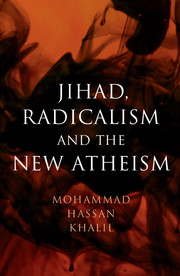Conclusion
Published online by Cambridge University Press: 12 December 2017
Summary
I opened this book by quoting an exchange between Sam Harris and journalist Fareed Zakaria on the topic of jihad. Harris asserted that Osama bin Laden's “interpretation of Islam is very straightforward and honest and you really have to split hairs and do some interpretive acrobatics in order to get it… to look non-canonical.” But consider some of the “interpretive acrobatics” bin Laden performed in his generally unsuccessful attempt to convince Muslim clerics and Islamists – including many who already held anti-American sentiments – that the September 11 attacks could be justified:
Recognizing that he was neither a state authority nor a certified scholar, and seeking to enlist “all Muslims” in a war that would employ extreme tactics, bin Laden attempted to demonstrate that his manifestly aggressive attacks were, in fact, part of a defensive jihad. (According to the centuries-old Islamic legal tradition of aggressive jihad, he lacked the requisite authority to launch and manage a war, and his tactics would have been even more difficult to justify.)
In making the case for a defensive jihad, bin Laden went to great lengths to present the United States as a bona fide threat to Muslims worldwide; he pointed to various American actions and sanctions while oversimplifying and misrepresenting some of the facts on the ground.
Recognizing the Prophet's explicit prohibition against the killing of noncombatants, most notably women and children, bin Laden argued that al-Qaeda's tactics against the United States were necessary and served the common good (notwithstanding indications to the contrary). And although the 9/11 attacks were directed mostly at civilians (many busy at work), he asserted that he was not targeting innocents but rather “the symbol” of a threatening enemy and that collateral casualties were therefore acceptable (an assertion widely regarded as disingenuous). For good measure, however, he also attempted to make an obviously modern argument that American adult civilians could be treated as combatants because both the taxes they paid (as required by law) and the decisions made by their government officials (who were neither unanimously elected nor unanimously supported) helped shape America's foreign policy.
- Type
- Chapter
- Information
- Jihad, Radicalism, and the New Atheism , pp. 164 - 168Publisher: Cambridge University PressPrint publication year: 2017



